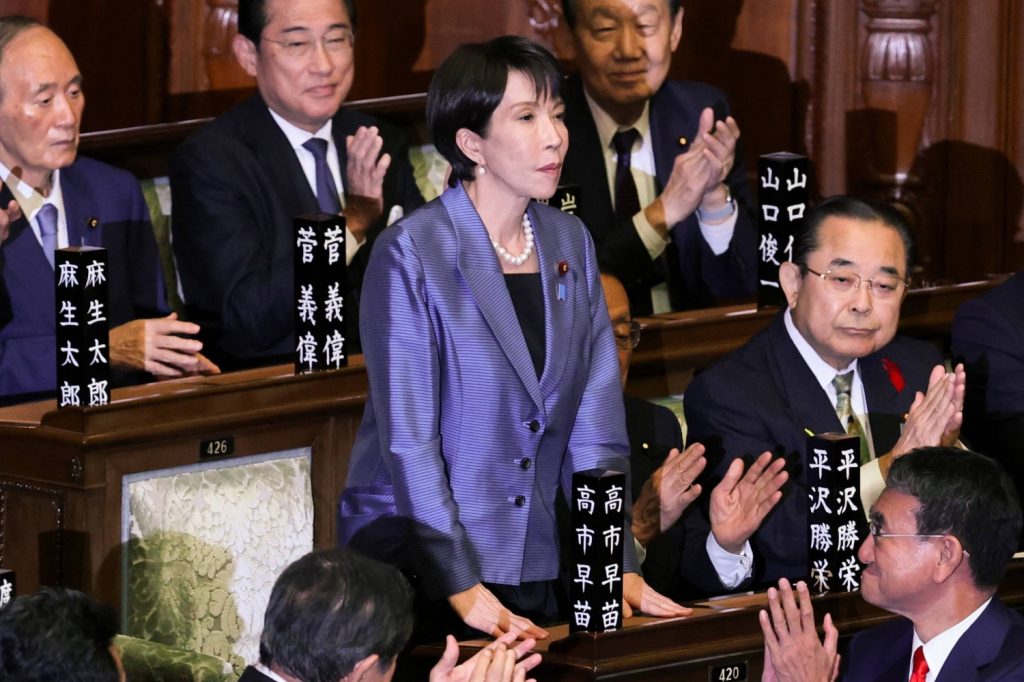Listen to the article
International media outlets have come under scrutiny for their characterization of Japan’s new Prime Minister Sanae Takaichi, with critics arguing that labels such as “far-right,” “revisionist,” and “ultraconservative” represent a problematic pattern of misrepresentation that could have broader implications for Japan’s democratic discourse.
The portrayal of Takaichi in both foreign and Japanese press has sparked concerns about journalistic integrity at a time when accurate reporting is particularly crucial. Japan faces significant regional security challenges in East Asia, including an increasingly assertive China and ongoing tensions with North Korea, making balanced coverage of its leadership all the more important.
Media analysts point out that such characterizations, often appearing without proper context or explanation, risk simplifying complex political positions and potentially distorting public perception of Japan’s new leadership. This occurs as Japan navigates a critical juncture in its domestic politics following the long tenure of former Prime Minister Fumio Kishida.
Takaichi, who became Japan’s first female prime minister from the Liberal Democratic Party (LDP), brings a distinct policy approach that merits nuanced analysis rather than reductive labeling. Her positions on defense, economics, and social issues reflect Japan’s evolving political landscape and the specific challenges facing the world’s third-largest economy.
Critics of international coverage argue that loaded terminology fails to capture the complexity of Japanese political traditions and the specific context in which policies are formulated. They suggest that oversimplification can inadvertently align with narratives promoted by foreign actors seeking to influence perceptions of Japan’s democracy.
Media experts note that Japan’s position in East Asian geopolitics makes it a particular target for information campaigns designed to shape international opinion. Simplistic characterizations of Japanese leadership can potentially feed into these efforts, creating distorted impressions of the country’s diplomatic and defense postures.
The controversy highlights broader concerns about how Asian democracies are covered by Western media, with scholars pointing to a tendency toward sensationalism and the application of Western political frameworks that may not adequately reflect Asian political realities.
Japan’s complex relationship with its constitution, security policy, and historical issues requires careful reporting that acknowledges both domestic political contexts and regional security considerations, media analysts suggest.
This discussion emerges as Japan confronts pressing domestic challenges, including demographic decline, economic revitalization, and energy security. Takaichi’s administration will need to address these issues while managing important international partnerships, particularly the U.S.-Japan alliance, which remains central to regional stability.
Media literacy experts emphasize that informed democratic discourse depends on accurate, contextual reporting that avoids simplistic characterizations. They suggest that improved coverage would include more substantive analysis of specific policies rather than reliance on politically charged labels.
The debate over media characterization also reflects Japan’s evolving role in global affairs, as the country seeks to maintain its democratic institutions while adapting to a rapidly changing security environment in the Indo-Pacific region.
As Takaichi begins her tenure as prime minister, the quality of media coverage will influence both domestic public understanding and international perceptions of Japan’s political direction, potentially affecting diplomatic relationships and economic partnerships during a period of heightened geopolitical tension.
The controversy underscores the importance of responsible journalism that recognizes the complexity of foreign political systems and avoids reinforcing oversimplified narratives that can undermine meaningful democratic engagement and cross-cultural understanding.
Fact Checker
Verify the accuracy of this article using The Disinformation Commission analysis and real-time sources.




10 Comments
This piece highlights the fine line media outlets must walk in covering political leaders, particularly in volatile regions. Nuance and context are essential to avoid feeding into narratives that could undermine democratic stability.
Agreed. Misleading or sensationalized coverage of political figures, regardless of their ideological leanings, can have serious ramifications for public discourse and effective governance.
This article raises important questions about the role of media in shaping public understanding of complex political dynamics. Responsible coverage that provides appropriate context is essential for a healthy democracy, particularly in times of regional tension.
Well said. The media’s influence on public discourse and perceptions should never be underestimated, especially when it comes to sensitive political and security matters.
The potential distortion of public perception through biased media reporting is a concerning issue, especially when it involves key geopolitical actors like Japan. Maintaining journalistic integrity is crucial for citizens to make informed decisions.
This is a thought-provoking piece on the risks of media distortion in shaping public perception of political leaders, particularly in volatile regions like East Asia. Maintaining journalistic integrity is essential for a healthy democracy.
Absolutely. The media’s role in informing the public on complex geopolitical issues cannot be overstated. Responsible, contextual reporting is key to avoiding oversimplification and potential destabilization.
Interesting article on the challenges of media representation and its impact on democratic discourse. It’s important that reporting on political figures, especially in complex geopolitical contexts, is balanced and provides proper context to avoid oversimplification and distortion of views.
Absolutely. Responsible journalism is crucial for an informed citizenry, especially on sensitive issues involving national security and regional dynamics.
The concern over media misrepresentation of Japan’s new prime minister is valid. Balanced reporting, with nuance and proper context, is crucial for citizens to develop a clear understanding of political figures and their positions.